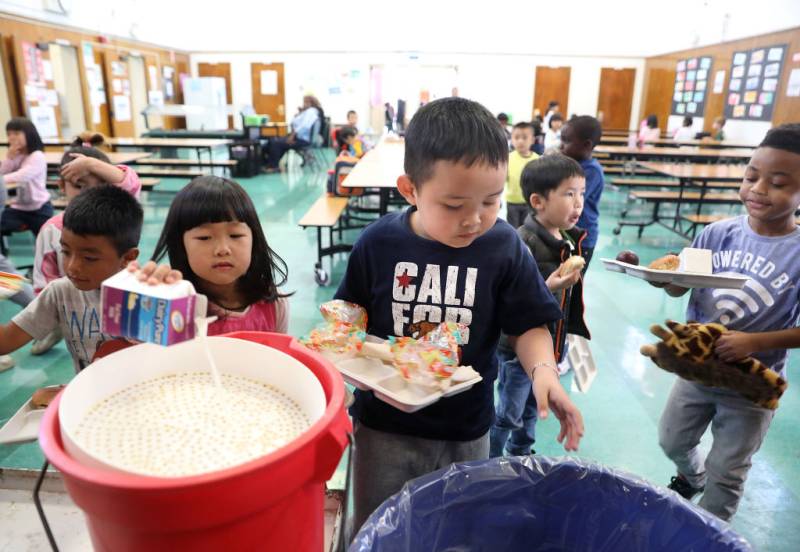Altfest said he heard about the elimination of the food program from a community partner, but his organization had yet to receive any information from the city itself.
Roughly 1 in 4 residents in Alameda County experience some level of food insecurity, he said, noting that children are the single largest group that food banks serve.
“If you think of a low-income family, they often depend on school meals. So when schools are out, that is typically when we will start to see spikes in seasonal need,” Altfest said. “That’s why this program has been so enormously beneficial to the families that we serve.”
The elimination of the program makes it “almost certain” that the already stretched food bank will see a significant increase in demand this summer, likely forcing it to dip further into reserves, he said.
“It really is one of the most uncertain, worrisome times that I’ve ever seen [here],” Altfest said, noting the food bank’s steep decline in contributions in recent years, as well as the massive cuts that Congress is currently considering making to the Supplemental Nutrition Assistance Program. “Having this happen is like salt in the wound.”
Parks Chapel African Methodist Episcopal Church, in Oakland’s Pill Hill neighborhood, has been serving lunches to children through the program for the past three summers. Many kids come through their day care centers, said Rev. Dr. Rosalynn Brookins, the church’s senior pastor.
“I was devastated by the news that we would no longer have the opportunity to feed children any meals because of the cuts that we’re now facing,” she said. “This means that our city is going to have thousands of children at risk for hunger based on this cut.”
Brookins said she’s praying for the city to reverse its decision and is now looking into other options to continue offering some food services to kids this summer.
“I’m asking for the council to reconsider, and I’m asking everyone in this community to stand up for the voiceless and the marginalized and the oppressed,” she said. “No child should go to bed hungry at night. No children should have to wonder if they’re going to have a decent meal.”

